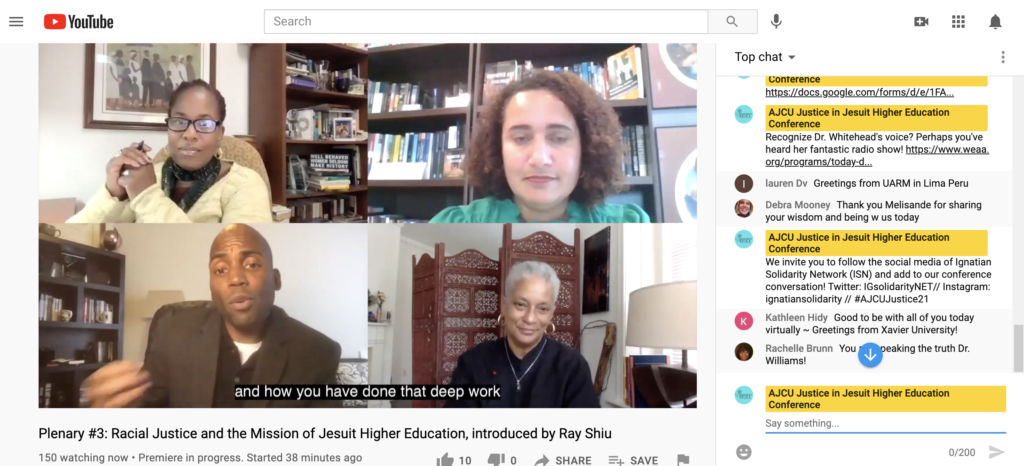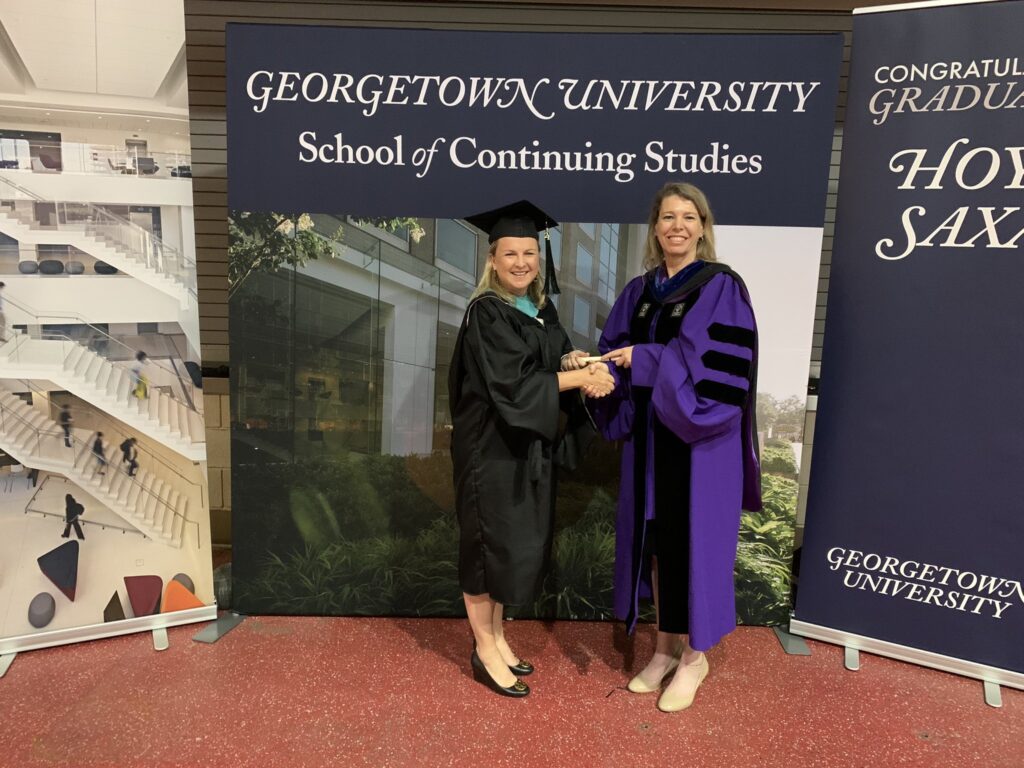Mission in Motion often highlights SCS degree and non-degree programs that advance Georgetown’s mission and values by offering professional educational opportunities that respond to pressing social and economic needs. Given the School’s experience in developing technology-mediated certificate education, SCS is uniquely positioned to leverage university resources and community partnerships to create these kinds of socially responsive programs. This way of proceeding as an educational entity at Georgetown is an important way that SCS contributes to the common good, deepening the commitment in the University’s mission statement to educate “women and men to be reflective lifelong learners, to be responsible and active participants in civic life and to live generously in service to others.”
SCS, in partnership with Georgetown’s Center for Child & Human Development, Medstar Georgetown University Hospital Department of Psychiatry, and the Center of Excellence for Infant & Early Childhood Mental Health Consultation, recently launched certificate programs intended to address the mental health needs of infants, children, and their caregivers, and families.
There are three new non-credit professional certificates:
- The Infant & Early Childhood Mental Health Family Leadership certificate
- The Infant & Early Childhood Mental Health Consultation certificate; and
- The Infant & Early Childhood Mental Health certificate
The intended audience for these certificates indicates in a powerful way how a Georgetown program, working in collaboration with subject matter experts and community resource providers, has the potential to serve critical needs while building capacity in a community to sustain more lasting change. By targeting professional clinicians, consultants, and community health workers in the field of infant mental health, these programs are working in a holistic manner by focusing on the ecosystem of care for infants and young children. The programs also reflect a pressing need surfaced during the global pandemic to create healthier, more resilient communities that can provide care and attention for children and their families, especially the most vulnerable.
Jeffrey Warner, Senior Director of Professional Development & Certificates at SCS, articulated the mission commitment of the infant and early childhood mental health certificates when he said:
“This program embodies the spirit of Georgetown University as an opportunity to learn to support more effective caregiving of all children, regardless of race, ethnicity, gender, or class. Our University’s Jesuit tradition of cura personalis is emphasized throughout the curriculum as it encourages care and individualized attention to the needs of children and their families, distinct respect for their circumstances and concerns, and an appropriate appreciation for their particular gifts and insights.”
These new certificate programs reflect the valuable ways that SCS lives out the University’s Jesuit values in partnership with others at Georgetown and beyond.
You can read more about these exciting new certificate programs on the SCS homepage: “Georgetown Launches New Infant & Early Childhood Mental Health Certificate Programs.” Learn more about all of the professional certificate programs offered by SCS.






